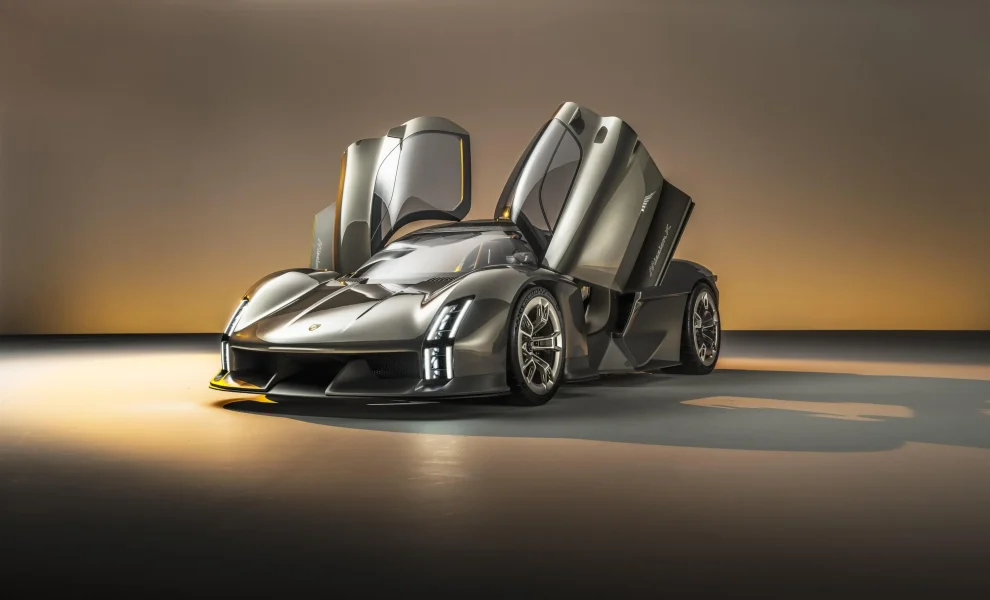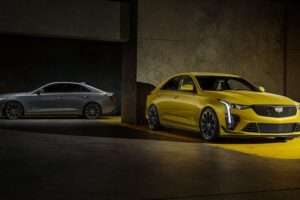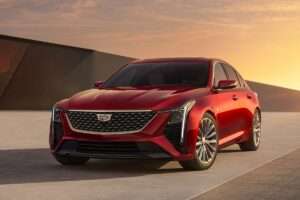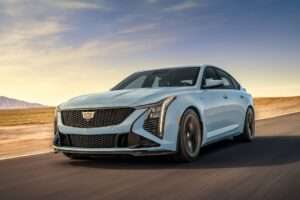The winds of change are sweeping through the automotive industry, and Porsche, the iconic German manufacturer known for its high-performance gasoline-powered vehicles, is embracing the electric revolution. In a recent announcement that sent shockwaves through the car enthusiast community, Porsche confirmed the phasing out of its beloved gasoline-powered Boxster, Cayman, and Macan models. This bold move signifies Porsche’s unwavering commitment to a sustainable future and its vision for a new generation of all-electric sports cars and SUVs.
A Farewell to Familiar Faces: The Legacy of Gas-Powered Porsches
The Boxster, Cayman, and Macan have been cornerstones of the Porsche lineup for decades, each carving a unique niche within the brand’s identity:
- The Boxster’s Allure: Introduced in 1996, the Boxster redefined the mid-engine roadster experience. Its sleek design, sharp handling, and exhilarating performance made it a favorite among driving purists and convertible enthusiasts.
- The Cayman’s Precision: The Cayman, introduced in 2006, offered a more track-focused alternative to the Boxster. Its balanced handling and driver-centric experience made it a popular choice for those who prioritized precision and agility over open-air thrills.
- The Macan’s Versatility: The Macan, launched in 2014, marked Porsche’s entry into the compact luxury SUV segment. It combined the brand’s signature performance DNA with practicality and everyday usability, attracting a wider audience.
These gasoline-powered Porsches have not only been commercial successes but have also played a significant role in shaping the brand’s image. Their departure marks the end of an era, leaving a void for some enthusiasts. However, Porsche’s vision for the future is clear – electric vehicles are the path forward.

Electrifying the Future: A Glimpse of Porsche’s EV Roadmap
While the news of phasing out gas-powered models might bring a sense of nostalgia, Porsche’s commitment to performance and innovation remains stronger than ever. Here’s what we can expect from their electric future:
- Dedicated Electric Platforms: Porsche is investing heavily in developing dedicated electric vehicle platforms that prioritize performance, handling, and driving dynamics – core aspects of the Porsche brand identity. These platforms will be the foundation for a new generation of electric sports cars and SUVs.
- The Taycan’s Success Story: The Taycan, Porsche’s first all-electric sports car, has been a critical and commercial success. It offers exhilarating performance, luxurious comfort, and sets a strong precedent for future electric Porsche models.
- A Range of Electric Offerings: We can expect a wider range of electric vehicles from Porsche in the coming years, catering to different segments and performance requirements. This could include electric successors to the Boxster, Cayman, and Macan, offering a thrilling electric alternative for fans of these iconic models.
The transition to electric power might require adjustments, but Porsche’s dedication to performance and innovation ensures that the future remains exciting. Their electric vehicles promise to deliver a unique blend of exhilarating driving experiences, luxurious comfort, and environmental responsibility.
Preserving the Legacy: What Happens to Existing Models?
The announcement regarding the phase-out of gasoline-powered models raises questions about the future of existing Boxster, Cayman, and Macan vehicles. Here’s what we know so far:
- Continued Production for Now: Production of the current gasoline-powered Boxster, Cayman, and Macan models will continue for a set period, allowing dealerships to sell remaining inventory and existing owners to enjoy their vehicles for years to come.
- Potential Collectible Status: As production ceases, these gasoline-powered models might become increasingly valuable collectibles, especially well-maintained examples. Their place in Porsche’s history and the shift towards electric vehicles could make them sought-after by enthusiasts in the future.
- Focus on Aftermarket Support: Porsche is committed to providing long-term after-sales support for existing gasoline-powered models. This includes servicing, parts availability, and ensuring owners can enjoy their vehicles for many years to come.
Porsche is taking steps to ensure a smooth transition for current owners and enthusiasts. While the era of gasoline-powered Boxsters, Caymans, and Macans is coming to an end, these models will continue to be cherished for their legacy and driving experience.
The future of Porsche is electric, and the phasing out of gasoline-powered Boxsters, Caymans, and Macans marks a significant turning point. This decision might evoke a sense of nostalgia for some, but it also paves the way for an exciting new chapter in the brand’s history. Porsche’s commitment to performance, innovation, and sustainability ensures that the electric era will be as thrilling and groundbreaking as the gasoline-powered era that came before it.
Beyond the Announcement: Questions and Speculations
The announcement regarding Porsche’s electric future is significant, but there are still questions and speculations that remain:
- The Timeline for Electric Successors: While Porsche has confirmed the phase-out of gasoline-powered models, the exact timeline for the introduction of electric replacements for the Boxster, Cayman, and Macan is yet to be revealed. Enthusiasts eagerly await news about the specifications, release dates, and design language of these upcoming electric sports cars and SUVs.
- The Future of the 718 Model Line: The 718 model line currently encompasses both the Boxster and Cayman. Whether Porsche will retain the 718 nameplate for their electric sports cars or introduce entirely new model names to signify the electric shift remains to be seen.
- The Impact on Dealerships and Aftermarket Support: As Porsche transitions to electric vehicles, dealerships might require training and infrastructure upgrades to service and maintain these new models effectively. Additionally, the long-term availability of parts and maintenance support for existing gasoline-powered models will be crucial for maintaining customer satisfaction.
These are just some of the questions that remain unanswered. However, one thing is certain: Porsche’s bold move towards electrification signifies a new chapter for the brand. It’s a chapter filled with exciting possibilities, technological advancements, and a continued dedication to delivering thrilling driving experiences while embracing environmental responsibility.
A Final Note: A Celebration of Porsche’s Legacy
While the era of gasoline-powered Boxsters, Caymans, and Macans might be coming to an end, these models deserve a final toast. They have cemented Porsche’s position as a leader in performance and innovation, and their legacy will continue to inspire future generations of car enthusiasts. As Porsche embarks on its electric journey, it carries with it the rich heritage and passion that have made it one of the most beloved automotive brands in the world. The future of Porsche might be electric, but it promises to be just as thrilling and groundbreaking as the gasoline-powered era that came before it.
















Add Comment